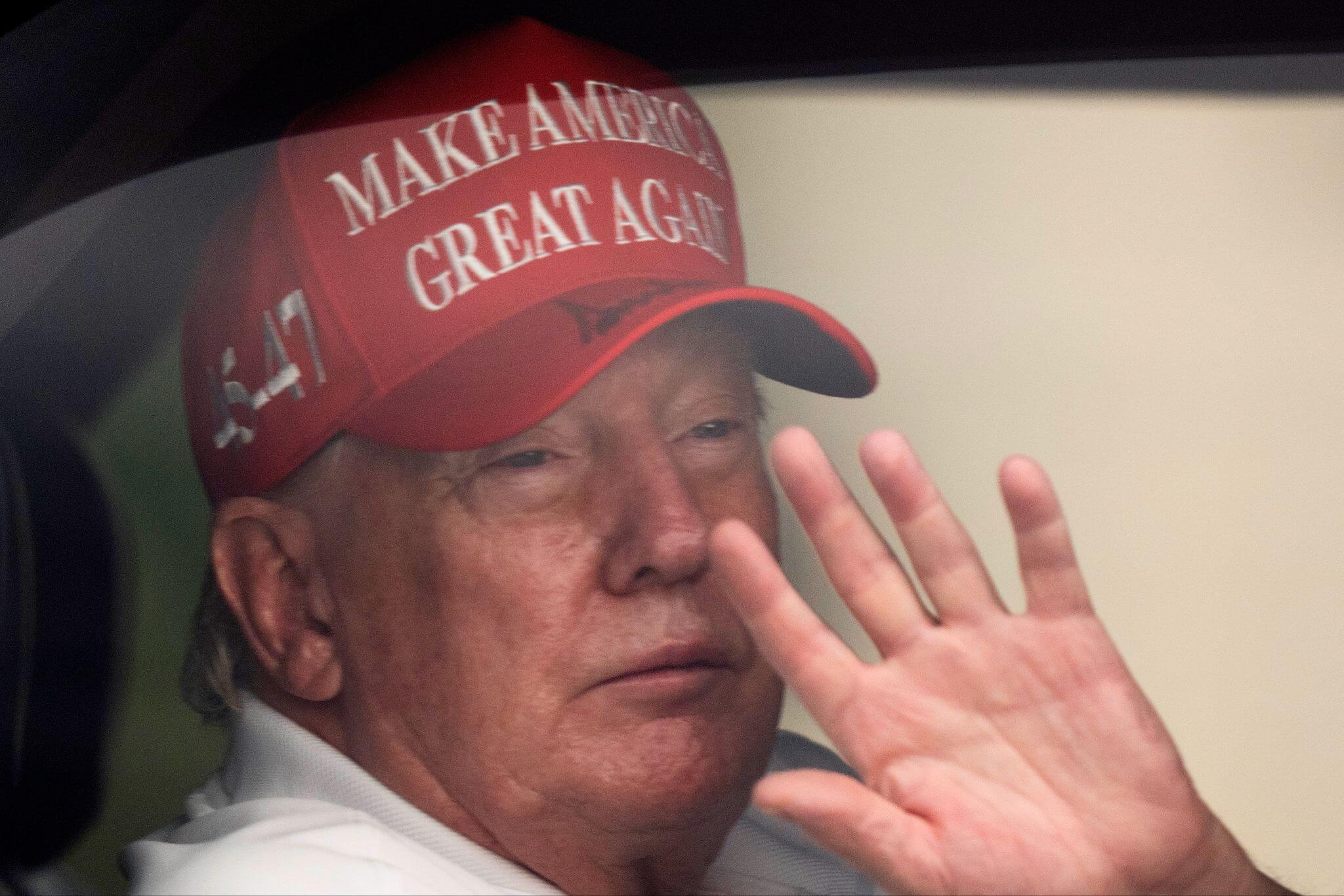The Los Angeles Times has a new editor. It’s Kevin Merida — one of the more respected journalists in the business.
He comes over after running The Undefeated, ESPN’s website that explores the intersection of race, culture and sports. And before that, he had a distinguished career at The Washington Post.
In fact, Merida’s name came up as a possible successor to Marty Baron, who retired earlier this year as the Post’s executive editor. Merida’s reputation inside the Post was solid.
So what happened with Merida and the Post? Well, here’s what Vanity Fair’s Joe Pompeo wrote a little over a month ago:
“Here’s what I learned from people with knowledge of the matter. Merida was encouraged to apply for the job, but he wasn’t exactly courted, at least not in the way one might have expected given all the boxes he appears to tick off: vast experience at the Post and support from former colleagues; stewardship of an innovative digital start-up inside a major media corporation; prominent journalist of color. The Los Angeles Times, which is a few months into its own hunt for an executive editor, has vigorously pursued Merida from the outset, and Disney has apparently made it clear that it doesn’t want to lose him to either newspaper. The Post, on the other hand, has been surprisingly ‘passive,’ as one source put it, and Merida decided not to enter the formal application process.”
Who knows why the Post wasn’t more aggressive with Merida. Maybe the Post is looking for a long-term editor — someone who could take over for 15 or so years, and, perhaps, Merida’s age (64) didn’t align with that plan.
But it works out well for the Los Angeles Times — a news outlet that has done a lot of good things since Dr. Patrick and Michele Soon-Shiong took over as majority owners in 2018. They hired veteran editor Norman Pearlstine as executive editor and the paper went on to win three Pulitzer Prizes. In addition, under the Soon-Shiongs, the paper added more than 100 journalists, increasing the total to more than 500.
But there have been serious issues, too.
The news organization has had a reckoning over race, with even Dr. Soon-Shiong writing last year, “But over its history, The Times has also mirrored, and in some cases propagated, the biases and prejudices of the world it covers, reflecting and shaping attitudes that have contributed to social and economic inequity. … We are beginning the process of acknowledging those biases of the past and taking positive action to affirm a commitment that our newsroom will not tolerate prejudice.”
Soon-Shiong added, “We are committed to change, both because it is just and because it is mission-critical for our business. Only a diverse newsroom can accurately tell this city’s stories. Only a newspaper that holds power to account and uncovers injustice can truly succeed.”
Hiring Merida, who is Black, is a step in that direction.
Merida also is being tasked with addressing the Times’ disappointing digital numbers. The Times’ Meg James wrote, “The Times has struggled to make the transition to digital media, hobbled by years of management turmoil, layoffs and underinvestment when it was owned by Tribune Publishing, which called itself Tronc for a couple of years.”
James reported that despite doubling its online subscribers in the past two years, the numbers are still disappointing. James wrote, “The Times has nearly 400,000 digital-only subscribers, which includes those who subscribe through Apple News+, the Cupertino tech giant’s paid subscription news service. It lags far behind major East Coast papers: the New York Times boasts more than 6 million digital subscribers and the Washington Post has nearly 3 million.”
Soon-Shiong told James, “And most importantly, (Merida’s) job is to move us into the digital arena. We want this paper to grow and be around for another 139 years.”
The financial picture at the Times, as it is for many newspapers, is uncertain at best. Company leadership said the Times and The San Diego Union-Tribune lost “north of $50 million” in revenue in 2020 — in large part due to COVID-related problems. Figuring out the digital aspect is critical.
If anyone can address the Times’ cultural issues, as well as begin to fix the Times journalism worries (read: digital subscriptions and online presence), it’s Merida.
Merida’s work at The Undefeated has been exemplary. The New York Times’ Katie Robertson wrote, “He got The Undefeated up and running, quickly establishing its editorial identity. The site’s relevance grew as prominent Black athletes embraced activism amid the rise of the social justice movement after the police killings of George Floyd, Breonna Taylor and others.”
This is a strong hire by the Los Angeles Times.
For more, James has a Q&A with Merida, who told her that it was difficult to leave The Undefeated.
“Yeah, it was very difficult,” Merida said. “We literally built a startup from the ground up and from outside of a big company, first with ESPN then expanding it across Walt Disney Co. It was about to be at the next level, growing with the different content streams and building a global brand. And so it was hard to leave. But I’ve always said it was not a one-person operation. But it’s not my Undefeated: Everybody built it, the leadership and the people in place, will carry it forward and continue to grow it. And I’ll be watching with enthusiasm and applause from the sidelines.”
As far as the Los Angeles Times, Merida told James, “I see nothing but opportunity. I think this can be the most innovative media company in the country.”
Merida’s hire
Merida becomes the third person of color to take over as editor in the 139-year history of The Los Angeles Times. Dean Baquet, the executive editor of The New York Times, was the Los Angeles Times editor from 2004 to 2005. Davan Maharaj was editor from 2011 to 2017.
What about the Post?
As I wrote back in March, a source close to the situation offered up this list of potential candidates to be the next executive editor of the Post: Rebecca Blumenstein, Carolyn Ryan and Marc Lacey — all high-ranking editors at The New York Times; National Geographic editor-in-chief Susan Goldberg; Star Tribune editor and senior vice president Rene Sanchez; and internal candidates Cameron Barr and Steven Ginsberg.
All indications are the Post will make a decision soon on its next editor.
Merida’s replacement at ESPN
ESPN wasted no time replacing Merida at The Undefeated. Raina Kelley, who has been The Undefeated’s managing editor since 2015, was promoted to editor-in-chief of The Undefeated.
Before joining The Undefeated, Kelley was deputy editor of ESPN The Magazine. She also has worked at Newsweek.
In a statement, Jimmy Pitaro, chairman of ESPN and Sports Content, said, “We know The Undefeated will continue to thrive with Raina in this role.”
[the_ad id=”667826″]
This item will not surprise you

Fox News’ Tucker Carlson (AP Photo/Richard Drew, File)
If you think Fox News is the least bit bothered by Tucker Carlson and all the ridiculous, irresponsible and divisive things he says on his prime-time show, think again.
Or here’s how current and former staffers of Fox News put it to The Daily Beast’s Diana Falzone and Justin Baragona: “The network does not care and nothing will happen to Carlson.”
Whether it’s about race, COVID-19 vaccines, wearing masks, the election or whatever, it appears Carlson can say anything he wants. The sources for The Daily Beast story say things like “Tucker is invincible” and “untouchable.”
Why? Simple. He gets good ratings and he’s a favorite of the Murdoch family, which owns the network. And now he seems to be at the point where he is seeing just how far he can go with his commentary — the latest being that people should call child protective services on parents who make their kids wear masks. But while many claim Carlson’s outrageous comments are nothing more than entertainment, trolling of the left and not to be taken literally or seriously, the problem is many of his millions of viewers do take him seriously.
One source told The Daily Beast, “If Trump is the most dangerous person in the country, Tucker is a close second behind him.”
Former Fox News anchor Gretchen Carlson tweeted last week: “People can have opinions but when they pretend to be a Dr. like #TuckerCarlson & his kids not wearing masks rhetoric, it’s downright dangerous. People unfortunately listen to him like he actually knows what he’s talking about. #WhatTheFox #COVID19.”
Facebook’s ban on Trump
On Jan. 7 — the day after his supporters stormed the Capitol — then-President Donald Trump was suspended indefinitely from Facebook and Instagram. On Wednesday, we will find out if that suspension will continue.
The Facebook Oversight Board is expected to announce its decision on Trump’s Facebook account at 9 a.m. Eastern on Wednesday.
Trump used Facebook and other platforms to post a video that told his supporters to stop rioting and go home, but also said, “We love you, you’re very special.”
That apparently was the last straw for Facebook, as well as other social media networks such as Twitter, which also suspended Trump. On Jan. 7, Facebook CEO Mark Zuckerberg said, “We believe the risks of allowing the President to continue to use our service during this period are simply too great.”
The decision to either allow Trump back or continue his ban will be made by the oversight board, which is an outside group that is funded by Facebook. Zuckerberg cannot overrule their decision.
For a good primer on the Trump case, the oversight board and how the process works, check out this story from The Washington Post’s Rachel Lerman and Heather Kelly.
Post policies on parades and protests
One of the biggest questions facing newsrooms these days is just how involved journalists can be when it comes to various protests, marches and parades. Typically, journalists cannot (and should not) show political bias, such as having a bumper sticker or yard sign of a political candidate. But what about a Black Lives Matter march? Or demonstrating outside of city hall over a local law? What about attending a pro-life or pro-guns rally?
The Daily Beast’s Max Tani tweeted a memo sent to the employees of The Washington Post from the paper’s leadership. The memo acknowledged that, with summer coming, there are many parades and festivals and leadership wanted to clarify the paper’s policies.
The memo said the paper is fine with employees attending “Pride or Juneteenth celebrations, July 4th parades, heritage festivals and other non-political gatherings.”
But, the memo said, “Protests, demonstrations and partisan activities are another matter … we are witnesses and observers in the public square, not participants or activists.”
The memo went on to say, “Context matters: It would be fine to participate in a celebration at BLM plaza but not protest there or attend a Pride gathering but not demonstrate at the Supreme Court.”
The memo said, “We should do everything possible to avoid partisanship or advocacy for specific policies or special interests, or the appearance of such activity.”
The memo is vague on certain aspects, and the Post encouraged employees to reach out to supervisors if they had any questions.
[the_ad id=”667872″]
Not good enough
On Monday, I wrote how The Washington Post, New York Times and NBC News ran corrections after reporting that Rudy Giuliani had been directly warned by the FBI that he was the target of a Russian disinformation campaign.
But was the Post’s correction good enough? Writing for his blog, Northeastern University journalism professor and media observer Dan Kennedy wrote, “When you have to publish a correction, be forthcoming about it. The Washington Post failed to do that over the weekend, thus compounding the harm it had done to Donald Trump adviser Rudy Giuliani.”
Kennedy added, “The correction makes it appear that the Post was backing down solely on Giuliani’s say-so.”
Kennedy said NBC News issued the best correction because they explained exactly what went wrong, while the Post’s and Times’ corrections were lacking, especially the Post’s. Kennedy’s blog item is short, but wallops a punch. Give it a look.
Gupta’s new podcast

Dr. Sanjay Gupta in a promo for his new podcast “Chasing Life” (Courtesy: CNN)
Dr. Sanjay Gutpa — CNN’s chief medical correspondent who has become a go-to analyst about COVID-19 over the past year — will host a new podcast that launches May 11.
The podcast will be called “Chasing Life” and it is being described as Gupta guiding listeners on “how to mindfully approach our new normal, while finding a balance between self-care and productivity.”
It’s the next podcast from Gupta, who has been hosting the podcast “Coronavirus, Fact vs. Fiction” for the past 14 months.
In an essay about the podcast, Gupta wrote, “The new series will explore the surprising science behind health, happiness and fulfillment. I’ll talk to medical experts, friends, my wife, and even some of you to share the best ways we can rebuild with intention in the coming months and optimize our minds and bodies to really thrive.”
Media tidbits
- Monday was World Press Freedom Day. President Joe Biden put out a statement for the occasion, saying, in part, “Journalists uncover the truth, check the abuse of power, and demand transparency from those in power. They are indispensable to the functioning of democracy. Throughout the COVID-19 pandemic, journalists and media workers have been on the front lines to keep the public informed, at significant risk to their own health. And, at a time when the truth is increasingly under attack, our need for accurate, fact-based reporting, open public conversation, and accountability has never been greater.” You can read Biden’s entire statement here.
- My colleagues Rick Edmonds, Poynter’s media business analyst, and Al Tompkins, senior faculty, with “Meredith sells its local broadcast division to Gray Television, doubling down on its magazine roots.”
- Amazon has worked out a deal with Fox to take over Thursday Night Football a year earlier than originally planned. Amazon will get exclusive rights starting in 2022. The Hollywood Reporter’s Alex Weprin has the details.
- For the 25th season of the WNBA, ESPN is presenting “25 for 25.” That means it will air 25 games over the course of the regular season. The games will air on either ESPN, ESPN2 or ABC, which will air an all-time high nine games. The schedule opens with a doubleheader on May 15 and includes a rematch of the 2020 WNBA Championship between Las Vegas and Seattle.
- Variety’s Brian Steinberg with “‘SNL’ Cast Members Are Juggling More Jobs Under Lorne Michaels.”
- The Washington Post’s Erik Wemple with “Cuomo plays cat-and-mouse with New York media.”
Hot type
- Smart and measured piece by The Atlantic’s Derek Thompson: “Millions Are Saying No to the Vaccines. What Are They Thinking?”
- Another outstanding piece from The Atlantic that will stick with you. Joshua Sharpe with “We Should All Be More Afraid of Driving.”
- I started reading this late at night and couldn’t put it down. Sports Illustrated’s Jon Wertheim with “Forty years later, one horse’s run at the 1981 Triple Crown is a story of failed promise, shattered lives and, in certain eyes, something deeply sinister.”
Have feedback or a tip? Email Poynter senior media writer Tom Jones at tjones@poynter.org.
[the_ad id=”667878″]
More resources for journalists
- Subscribe to The Collective — Poynter’s monthly newsletter for journalists of color by journalists of color
- How Any Journalist Can Earn Trust (Self-directed) — Trusting News
- On Poynt: Diverse Voices and the Future Newsroom (Live webinar) — May 6 at noon Eastern
- Reporting in the Age of Social Justice (Online Seminar) — Apply by May 10
The Poynter Report is our daily media newsletter. To have it delivered to your inbox Monday-Friday, sign up here.







